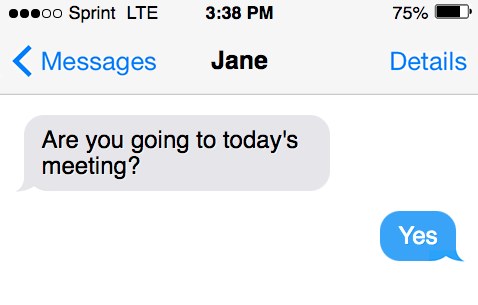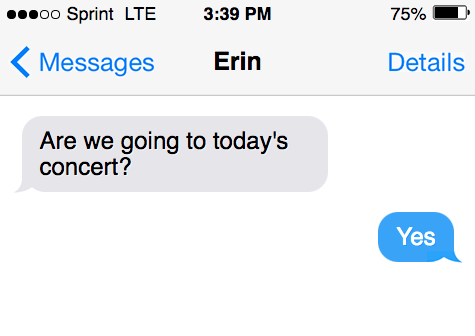Is it “todays” or “today’s?” Is there an apostrophe before the letter “s” in the plural word of “today?”
What is the definition of the word “today?”
The definition of the word “today” is “the present day.” According to Merriam-Webster, the word “today” is most commonly used as an adverb and noun. Meaning “the present day, time, or age.”
Synonyms for “today”
- Here and now
- Moment
- Present
The etymology of the word “today”
The word “today” comes from the Old English word “tō dæg,” which means “to day.” Over time, the meaning of the word shifted to the present day.

When to use an apostrophe before the letter “s”
The general rule is that if the noun is plural (i.e., there is more than one), you do not use an apostrophe before the letter “s.” So, for example, you would write “the cats are sleeping” (because there is more than one cat).
However, there are some exceptions to this rule. For example, if the noun is singular but ends in the letter “s,” you would use an apostrophe before the letter “s.” So, for example, you would write “the cat’s sleeping” (because there is only one cat).
Another exception is using the possessive form of a plural noun. In this case, you would use an apostrophe after the letter “s.” So, for example, you would write “the cats’ sleeping” (because the cats possess something).
Finally, there is another instance where you might use an apostrophe before the letter “s,” which is when you are abbreviating a word.

Why use an apostrophe for possession in English grammar
The apostrophe is used to indicate possession in English grammar. For example, if you wanted to show that the cat owns the toy, you would write “the cat’s toy.” This shows that the toy belongs to the cat.
The apostrophe is also used to form contractions. A contraction is a shortened form of a word or phrase. For example, the contraction for “do not” is “don’t.” The apostrophe takes the place of the omitted letter or letters.
Finally, the apostrophe can be used to create plural forms of words. For example, if you wanted to show that there are multiple cats, you would write “the cats.” This shows that there is more than one cat.
What is the plural form of the word “today?”
The plural form of the word “today” is “today’s.” However, if you use the possessive form, you would write “today’s.” For example, “Today’s weather is cloudy.”
Which is correct, “today’s or “todays?”
If you are referring to the possessive form of the word “today,” you would write “today’s.” The plural of today is “today’s.”
Examples where “today’s” get used
Common idioms and phrases where “today’s” gets used:
- What is today’s date?
- What time does today’s meeting start?
- Today’s weather looks nice outside.
- When is today’s dinner?
When should the word “today” get used as an adjective?
The word “today” can be used as an adjective when it is modifying a noun. For example, “I have today’s newspaper.” In this sentence, the word “today” functions as an adjective.
Common questions
Questions about the English language.
Can I say, “today’s morning?”
No, this is incorrect. You would say “this morning.”
Can I say, “I have today’s newspaper?”
Yes, this is correct.
Is the word “today’s” a contradiction?
No, the word “today’s” is not a contradiction.
Is it correct to say “today’s?”
Yes, it is correct to say “today’s.”
Sources
- Today Definition & Meaning – Merriam-Webster
- 38 Synonyms & Antonyms of TODAY – Merriam-Webster
- Which is Correct? Today’s meeting or Todays … – A Plus Topper
- Grammar: Contractions – GCFGlobal
- Plural Nouns Regular Irregular – Grammar CL
- dæg – Wiktionary
Inside this article
Fact checked:
Content is rigorously reviewed by a team of qualified and experienced fact checkers. Fact checkers review articles for factual accuracy, relevance, and timeliness. Learn more.
Core lessons
Glossary
- Abstract Noun
- Accusative Case
- Anecdote
- Antonym
- Active Sentence
- Adverb
- Adjective
- Allegory
- Alliteration
- Adjective Clause
- Adjective Phrase
- Ampersand
- Anastrophe
- Adverbial Clause
- Appositive Phrase
- Clause
- Compound Adjective
- Complex Sentence
- Compound Words
- Compound Predicate
- Common Noun
- Comparative Adjective
- Comparative and Superlative
- Compound Noun
- Compound Subject
- Compound Sentence
- Copular Verb
- Collective Noun
- Colloquialism
- Conciseness
- Consonance
- Conditional
- Concrete Noun
- Conjunction
- Conjugation
- Conditional Sentence
- Comma Splice
- Correlative Conjunction
- Coordinating Conjunction
- Coordinate Adjective
- Cumulative Adjective
- Dative Case
- Determiner
- Declarative Sentence
- Declarative Statement
- Direct Object Pronoun
- Direct Object
- Diction
- Diphthong
- Dangling Modifier
- Demonstrative Pronoun
- Demonstrative Adjective
- Direct Characterization
- Definite Article
- Doublespeak
- False Dilemma Fallacy
- Future Perfect Progressive
- Future Simple
- Future Perfect Continuous
- Future Perfect
- First Conditional
- Irregular Adjective
- Irregular Verb
- Imperative Sentence
- Indefinite Article
- Intransitive Verb
- Introductory Phrase
- Indefinite Pronoun
- Indirect Characterization
- Interrogative Sentence
- Intensive Pronoun
- Inanimate Object
- Indefinite Tense
- Infinitive Phrase
- Interjection
- Intensifier
- Infinitive
- Indicative Mood
- Participle
- Parallelism
- Prepositional Phrase
- Past Simple Tense
- Past Continuous Tense
- Past Perfect Tense
- Past Progressive Tense
- Present Simple Tense
- Present Perfect Tense
- Personal Pronoun
- Personification
- Persuasive Writing
- Parallel Structure
- Phrasal Verb
- Predicate Adjective
- Predicate Nominative
- Phonetic Language
- Plural Noun
- Punctuation
- Punctuation Marks
- Preposition
- Preposition of Place
- Parts of Speech
- Possessive Adjective
- Possessive Determiner
- Possessive Case
- Possessive Noun
- Proper Adjective
- Proper Noun
- Present Participle
- Prefix
- Predicate



